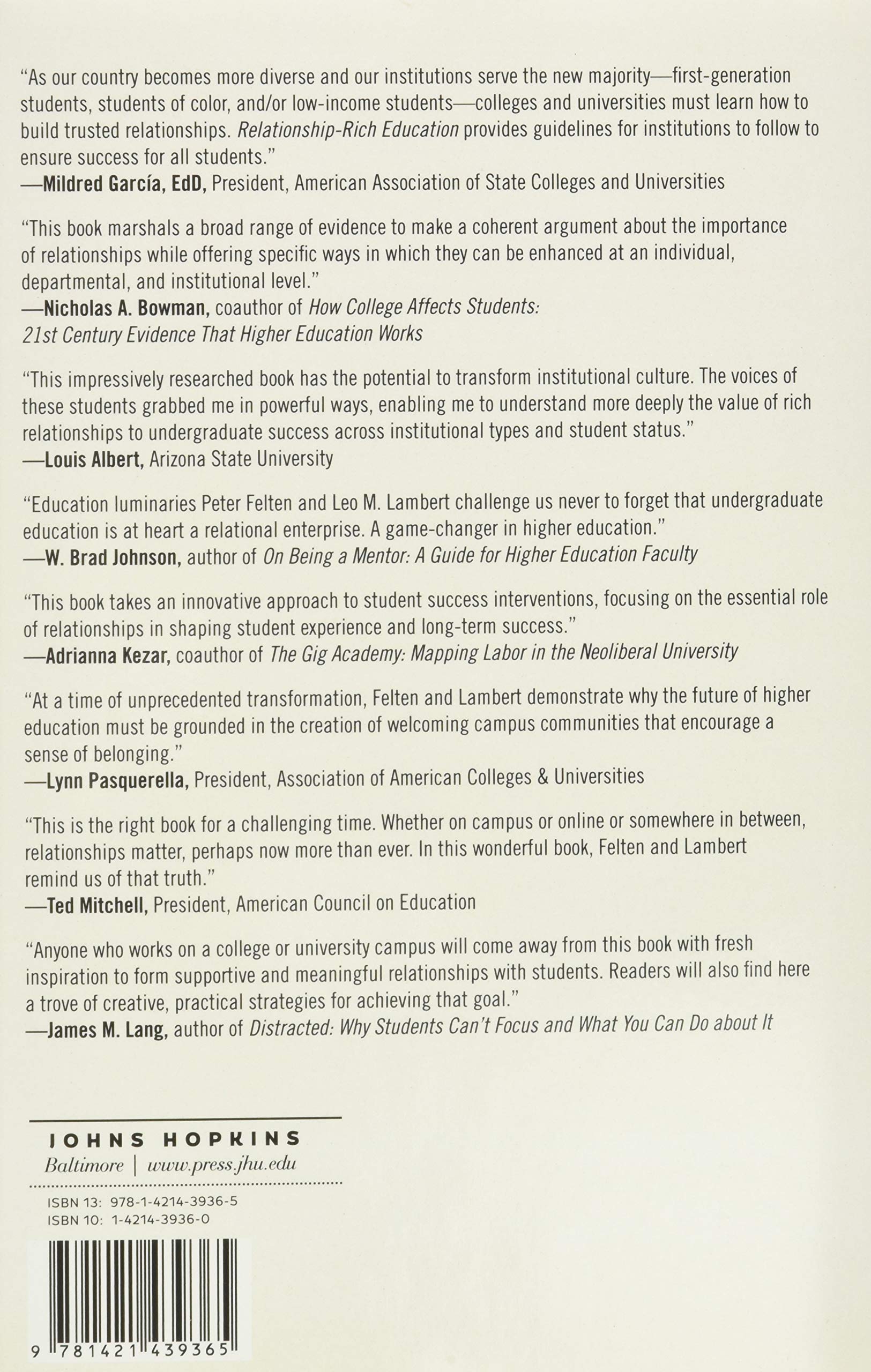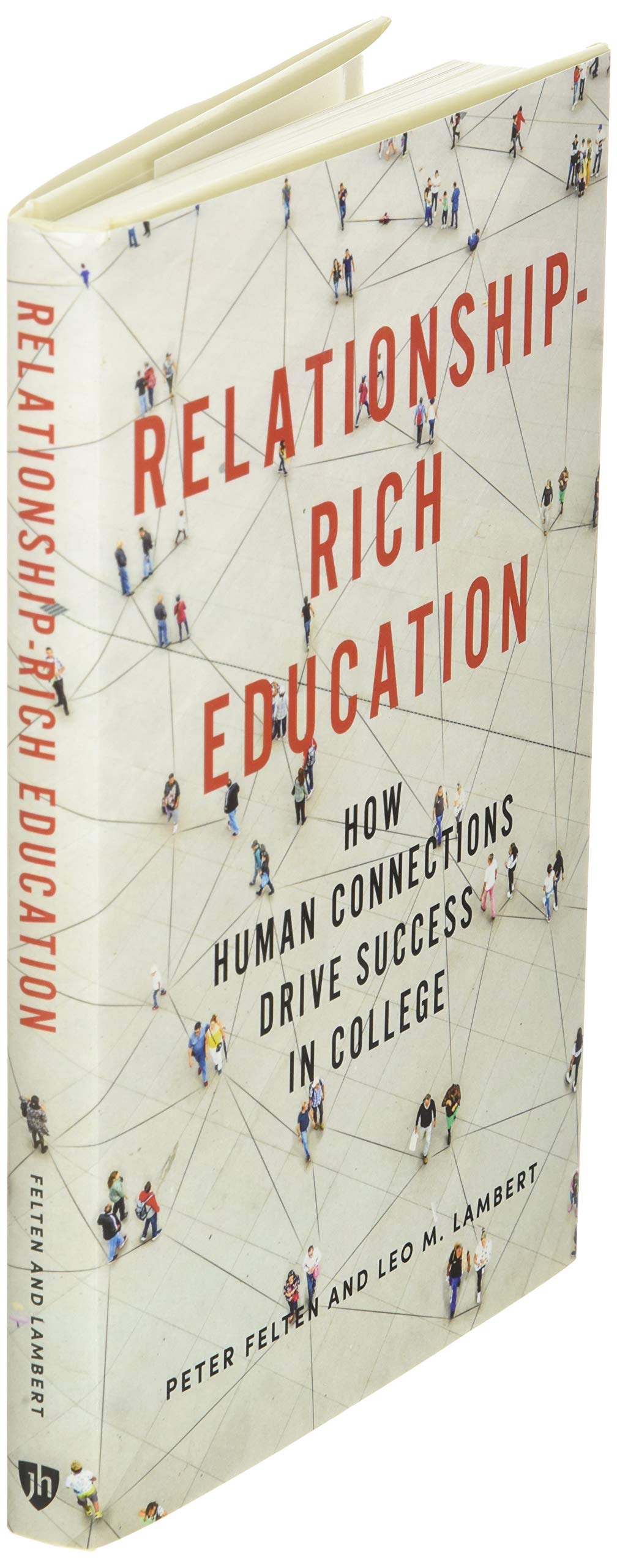Customer Services
Copyright © 2025 Desertcart Holdings Limited





Relationship-Rich Education: How Human Connections Drive Success in College
F**Y
Put human connection at the center of the undergraduate experience
Higher ed scholars and experts Felten and Lambert make a compelling argument that what higher ed needs most is human connections, relationships, in and out of the classroom. Foreword authors Isis Artze-Vega and Ed Taylor add their call to action in order to support "new majority" students: "this time of unprecedented diversity makes the centering of human connection more urgent than it has been for quite some time... we will need to be intentional about promoting connections among the diverse members of our communities, and we will each need to enhance our ability to relate to others, particularly across our ethnic and racial differences." Relating with our students, and helping them feel included and supported, is eminently possible in strategic and sustainable ways, argue Felten and Lambert. If you care about improving higher ed, get this book. If you want to offer equitable and inclusive experiences for all of our capable students, get this book. If you see, as I do, the centrality of higher ed to protect and preserve democracy, get this book. Or more importantly, if you see the centrality of human connections in higher ed. You'll be glad you did.
J**B
Vendor did well. Book was disappointing
First, my review is of the book, not the vendor, Thriftbooks. I purchased a used copy. I got one that had been highlighted and flagged. All of that was intact. The book arrived quickly and in perfectly readable shape.The book itself was disappointing. I am reading it to prepare for a group discussion at my institution. I knew there would be a problem when I saw the book was written by professors at Elon University. I had read George Keller's book "Transforming a College" about the remake of Elon where it described building its success around abandoning its traditional middle-class student base to pursue wealthier students from more elite high schools and prep schools. That plan of intentional academic gentrification makes me wonder about the institution's real commitment to student learning and social mobility. So, that the authors came from that environment makes the reader question the real utility of their experience in connecting across a diverse student base.The authors also used some institutions like Brown and the US Naval Academy and the University of Michigan where student relationship issues are very different than those at 90% of the institutions out there.The best insights probably come from the community college that they focused on. Those issues of connection, motivation, and access to information probably ring the most true to faculty members trying to coach first-generation students through college. There are some things that I will draw from that.
A**R
Textbook was delivered as expected
Textbook was delivered as expected
M**S
2 of the 5 discs were not playable.
Of the 5 CDs in this audiobook, discs 1 & 5 would not play as expected.
B**N
A game-changer in higher education
This is a quick read but a critically important book. At a time when forces of all variety are making student-centric undergraduate education a rarity, education luminaries Felten and Lambert offer an audacious roadmap to honoring and facilitating relationship-rich higher ed. Great book!
S**T
Relationships are and should be the foundation of the a successful college experience
This book is written by two leaders of higher education, Peter Felten and Leo Lambert. The authors thoughtfully lay out the case for grounding collegiate education in the building of a network of relationships for students. These concepts seem simple, but are often lost in the day-to-day shuffle of college. Using examples drawn from all types of higher education institutions, the authors show us what college SHOULD be. I'd highly recommend it for any one who works in higher education, high school counselors, prospective college students and their parents.
Trustpilot
1 month ago
1 month ago